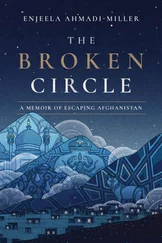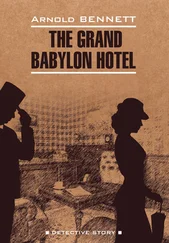“We’re praying for you and your daughter,” Carmelita says over the phone.
“Thank you. Hopefully she’ll be home very soon,” I say.
“Oh, just one more thing,” Carmelita says. When do you think you’ll be back at work?”
“The doctor said I’d be fine to come back next week. No lifting more than ten pounds, no Ibuprofen, and take all these meds” I say, staring at the table of prescription bottles in front of me.
“Like I told you,” Carmelita responds, “don’t worry about a thing. The important thing is that you heal.”
“I feel fine now,” I say, probing my abdomen gingerly.
“Oh, one more thing,” Carmelita says. “There’s some vendor, a Moore Floral and Nursery that keeps calling for you, but won’t leave a message. Do you know what that’s about?”
“Oh that. Yeah, they submitted an invoice from 2001 for some yard maintenance for that property in Martinez, but I don’t show an open P.O. Just tell Peggy to make sure she doesn’t pay that bill until we get it straightened out.”
“Oh, one more thing,” says Carmelita. “No one knows what kind of printer cartridges you always order. Peggy wanted me to ask you if you get it from Office Depot.”
“In my bottom drawer is a file that has all that info,” I say. “Have Peggy look there.”
We say our good-byes. The phone immediately rings. Carmelita with ‘just one more thing’, I’m sure.
“Hello?”
“Mrs. Skinner?”
It’s the voice of Bart Strong, the private investigator. My heart flips in my chest.
“Yes?”
“Bart here. Sorry I’m just now getting back to you. Family reunion back east.”
I update him on the recent spate of events, including Rob and I scheduling the lie detector tests.
“I just don’t understand why law enforcement isn’t doing more,” I conclude.
“Listen,” Bart says. “I talked with a cop friend of mine in the department. Every time a foster kid decides to stay out late or spend the night at a friend’s house, the law requires the foster family to file a report. Between foster kids, and abused kids, as well as the garden variety runaways like Robyn, you’re looking at hundreds and hundreds of kids. Police just don’t have the resources necessary.”
“But these are children,” I say in a petulant voice.
“Society’s been pushing the envelope for years. Remember those Brooke Shields ads for jeans in the eighties? She was just a teenager. And those ads were tame compared to what Abercrombie and Fitch is putting out today.”
Their latest catalogue shows college aged teens nearly naked, having orgies.”
“My God,” I whisper.
“And that’s not all. My friend says there are ads out there targeting thong underwear to seven to fourteen year old girls.”
“What is wrong with people?” I exclaim.
“When you’ve got little girls advertising lingerie, it’s not that big a leap to start looking at them as sexual objects. Pimps are just capitalizing on this trend.”
I feel like gagging. This can’t be happening. What has happened to our world; to basic decency? And what’s worse, my daughter is caught up in this vortex of filth and depravity. My heart swells with worry. I push away the desperation that threatens to subsume me.
“I want you to kidnap my daughter,” I say.
I hear Bart take a sharp intake of breath.
“Listen Mrs. Skinner. I told you when you hired me; I don’t do extractions.”
“Well then give me the name of someone who does,” I demand.
“It’s not as easy as you think. There are companies out there, KRE, and others who-”
“KRE?” I ask. I am toying with one of my prescription bottle of pills.
“Kidnap, Rescue and Extortion,” Bart responds. “But they’re expensive. Nine to ten grand and up, depending on the circumstances.”
I close my eyes. He might as well have said nine to ten million. There’s no way I can get my hands on that kind of money.
“Abducting someone gets into a lot of fuzzy areas where the law is concerned.”
“I don’t want her ‘abducted’, I want her rescued. There’s a huge difference.”
“Not in my book. And not in the eyes of the law,” he says. “Besides, if you were to do this, then what? You think she’s going to stay at home and be a good little girl?”
“I’ve found a place,” I say. “In Southern California. It’s a rehab exclusively for teenagers. The facilitator has already said that there’s a huge chance that Robyn’s got a chemical dependency issue on top of everything else and we can most likely get the insurance to pay for her stay there.”
“Look, I’d like to help you, I really would.” I hear sympathy in his voice. “But,” he pauses. “I can’t risk losing my license.”
I slam down the prescription bottle onto the coffee table.
“Never mind, then. I’ll save her myself.” I hang up the phone.
I look over the notes I’ve made on the inside flap of the phone book. Peaceful Acres, in Newport Beach, California. A lockdown facility that promises to “deprogram” youth brainwashed by cults; intensive counseling for all sorts of teenage disorders, ranging from drug addiction to anorexia. A “panoramic, natural setting resting on the beautiful Californian coastline”, John Simpson, one of the facilitators, told me over the phone.
Waves of the hundred plus degree heat from outside weigh the air inside the house. I wipe the sweat from my forehead and pick up the cordless. I want to talk to John Simpson again. In our previous conversation earlier this week, he made it all sound so simple. Robyn would be kept to a rigorous schedule of one on one counseling and group therapy. She would have the opportunity to talk to other girls who have been through similar situations. And she’d be near the sea. How good would this be for my daughter? Just the thought makes me smile. But before I can dial his number, the front door opens. Rob is home.
From the look on his face I can see that his mood is dark. Since our fight four days ago, we have been distant but polite to each other. He has come and gone, seemingly sporadically at times, but always dutifully returning no later than eight at night to heat me up a can of chicken noodle soup.
“Hey,” I say.
He tosses his keys on the table but doesn’t answer me. I can tell by his walk as he stumbles into the kitchen that he is drunk. Again.
I hear him get a glass from the cupboard. I ease up off the couch and amble into the kitchen after him. He’s pouring himself a large glass of milk, which means he’s really drunk.
“I hope you’re friggin’ happy,” he says, slamming the refrigerator door closed.
“What?”
“Cops said I was being deceptive on that friggin’ lie detector test.”
I lean back against the counter and cross my arms in front of me. How can this be? I look down at the floor. What is there to say? I walk over to him.
“Oh Rob,” I say, reaching out to touch his shoulder.
He wrenches away from me.
“Don’t,” he says.
“Won’t they let you take it again?”
“Don’t you get it?” he says. He spins around, nearly losing his balance. His hand jerks outward, catching the fridge door to steady himself.
“I failed the friggin’ test!”
“But you were nervous.” I pause a moment. “And probably angry; couldn’t that skew the results?”
He turns away and tromps into the living room. I follow after him. He is in his recliner, sitting forward, his elbows on his knees, head down between hunched shoulders.
I sit on the couch facing him.
“Rob, honey, it’ll be okay,” I offer, not really believing my words.
He looks at me. Tears are streaming down his face.
“No. It’s not. It’s never gonna be okay. It’s never been okay,” he says in a hushed voice.
Читать дальше











